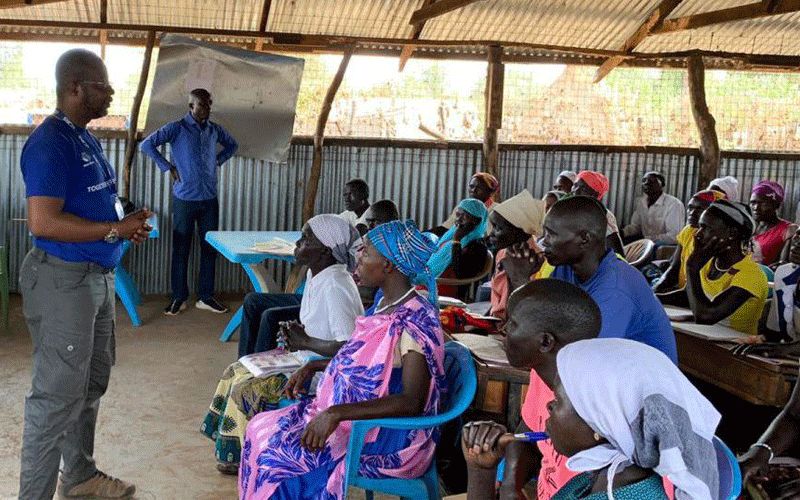Nairobi, 23 July, 2020 / 9:00 pm (ACI Africa).
The leadership of Jesuit Refugee Service (JRS) has, in an interview with ACI Africa, highlighted the plight of refugees in Eastern Africa as they grapple with the double crisis of reduced food rations from the World Food Program (WFP) due to cash shortfalls and COVID-19 restrictions.
In the Thursday, July 23 interview, the Regional Director of JRS Eastern Africa, Andre Atsu noted that the reduced food rations coupled with COVID-19 restrictions has had “an aggregate impact on the lives and the well-being of refugees” in Kenya, Uganda, Ethiopia and South Sudan.
“The underfunding in the past months of the World Food Program (WFP), the main UN agency addressing hunger and promoting food security to the refugees in the camps, created deprivation among the refugees,” Mr. Atsu told ACI Africa July 23.
He added, “This has been exacerbated by the COVID-19 pandemic, which forced the majority of countries into lockdown and/or restrictive movements.”
The challenges, the Regional Director said, have negatively impacted the livelihoods and well-being of the “15-20 percent of refugees in the region who live in urban settings” and who “are the worst hit with no access to their daily wages or income for food, nor are they able to pay their rent or medical bills.”








